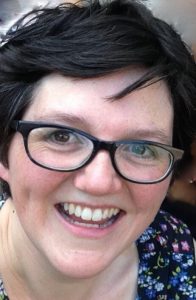Always wanted to learn Old Irish or Sranan Tongo? Still prefer to learn to rap with Nitrogen? Do you wonder how aid workers communicate when they are deployed?

In a couple of days, the Drongo Festival will start, two days covering all facets of language. You can take crash courses in Chinese as well as listen to all kinds of lectures. We take a sneak preview with keynotespeaker Sharon Unsworth. She is an expert in bilingual language development and an expert by experience: she has bilingual children.
Preview
On the phone, Sharon Unsworth talks about her keynote. Ultimately, it comes down to a number of Do's and Don't's for parents. I may reveal a few in advance. Such as: speak in both the home language and the national language as much as possible. Make sure the child hears both. Encourage them to speak the home language as well. Make sure there are plenty of words, because a child will use all the words it hears. If you switch to Dutch too soon, a child will understand the home language, but will no longer speak it well. That is a loss.
It is super important to maintain your home language and be able to communicate in it. Unsworth herself thinks she will have a better relationship with her children if she can communicate in English. There are many advantages to being bilingual, which she would like to pass on to her children.
American research has shown that it is better for a child's language development to be exposed to the home language than to a less well-mastered second language. So for example, if you yourself speak a non-Western, non-status-enhancing language like Ukrainian, it is always better to speak it well at home with your child, than a moderately mastered new language. So maintain that home language! How cool is it to be fluent in Berber and Dutch as a five-year-old? Or Norwegian and Hindi? Or English and Swahili?
Science is not 'just another opinion'
Everyone has an opinion on bilingualism. And sometimes the negative one prevails: forget Turkish/Ukrainian/Berber, speak Dutch! It is nice that there is research showing that this is not better for the child or the upbringing.
I also had my own ideas. Unsworth helped me get rid of them. I thought I knew that bilingual children would actually be smarter by definition and that it is convenient to speak one language per parent. Turns out neither of these is true. Unsworth explains that it is far from always possible to have one language per parent. For example, if both parents are Turkish, the child will at least hear Turkish at home and Dutch at school. In that case, separation is convenient, but not per parent, but per location, for example.
But whatever you do: speak a lot, enrich the vocabulary. More really is better in this case.
Curious? Want to know more? Sharon Unsworth's keynote is currently fully booked, but you can get on the waiting list. And there are many programme sections for which you do not need to book. For more information and booking, click here.
